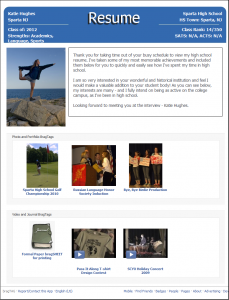Absolutely. Sometimes. Hopefully. No.
Depending on who you are and what your goals are, each of those answers is equally likely to be true. Like many things, there really isn’t a one-size fits all answer to this question.
Here are the factors you need to consider when thinking about paid test prep:
Household Income
In an effort to be equitable, colleges expect that students in lower income households have less prep/lower quality prep than students in the upper earning households. That creates a double-edged sword: you’re off the hook a little if you’re a low-earning household, but if you have money to spend on education/prep, colleges expect that you have spent it (therefore they expect higher scores from you).
This means, no matter what your household income includes, you’re going to have to make two decisions:
- Whether you’re going to (or can) spend money beyond the sum of library late fees.
- With whom you’re going to spend that money to get the most bang for your buck.
Student motivation and study skills
Extremely motivated students are real. They love to work hard, they know where to find great information, and they’re driven to work through new concepts until they understand them. These are kids who can sit down with a book and learn from it (and yes, get incredible scores just from the book) or they’ll hop on the internet and choose a tutor they know they’re going to learn from.
 You can trust motivated students to guide themselves. They’ll seek out those books that are really helpful and they know if and when they’re reaching their goals. They’ll usually be the first to pipe up if they need some extra help. Unfortunately, these kids are not the norm, particularly outside the top scorers and most competitive high schools.
You can trust motivated students to guide themselves. They’ll seek out those books that are really helpful and they know if and when they’re reaching their goals. They’ll usually be the first to pipe up if they need some extra help. Unfortunately, these kids are not the norm, particularly outside the top scorers and most competitive high schools.
If your student is either less personally motivated or incredibly intimidated by the ACT or SAT, a book is more likely to become a doorstop than your ticket to Princeton.
When a Book Isn’t Enough: Deciding to Pay for Prep
You must be aware of the kind of prep you’re getting. Right now there are some huge, huge companies whose brands are plastered all over bus stops and billboards and the web. They’re the accepted leaders of the industry, but they’re not often much more than brands. That’s why NACAC released a study a year or two ago saying the average student that prepped with one of these big companies (to the tune of $1000 for a class) only saw a 30 point increase in their scores.
If you’re going with a huge company, ask a lot of questions:
-Are you getting a class? How many people will be in it?
-Are you doing one-on-one? How long has that tutor been tutoring?
-Are there rungs of expertise? Many intro-level tutors only make $15 to $20 an hour. People most established in the industry make anywhere from $200 to $400. Industry leaders sometimes make $600 and more.
I say this to point out that many times you get what you pay for. If you’re going to spend $1000 with a big company, maybe a couple hours with a much better tutor (and skipping those ten-week classes) will get you where you need to go.
The good news is that there are a lot of smaller companies and private individuals (working with a live one-on-one person is always going to be better than taking an automated course) out there that are actually worth the time and money. Even better, some of them are online, so whether you’re in a booming metropolis or in the middle of nowhere, you have access to whatever you decide you want and need.
Have Real Score Goals
Yes, it’s entirely possible to increase SAT scores with paid prep by 300 points or more. My students do so frequently. The question you need to ask, though, is “Do I need my SAT score to go up several hundred points?”
Your score goals are largely going to be based on your target colleges. If you only need 50 more points, it’s ok to prep with that goal in mind. (note: I’d make sure that your practice work shoots for an extra 100 points for each 50 need.) Each student is different: one may need a tutor to get those fifty points. Another may be able to use a book. You have to be painfully honest about what’s going to be most effective, what you really need, and invest the time and money accordingly.
On the other hand, you’re going to be inclined to spend more if your plan is to see just how high you can get your score to go. In other words, you may want to see if you can get a 2100 or above (or a 32+ on the ACT) and let that score range guide where you apply. I once had an ACT student’s score go from a 21 to a 31. That score change changed her life; it’s the difference between applying to community college and Boston College. Whether that’s appropriate for you is up to you.
The Bottom Line
No, you do not always have to pay for test prep.
Yes, it’s possible to use books and online resources effectively, but you need to research those books carefully. Just like tutors, one book is not as effective as the next. Brand recognition and quality are not always synonymous.
Most students are not yet established enough learners to get everything out of a book that they possibly can. Use your goals and progress to decide if you need more help or are ok on your own.
If you can spend the money, take the time to find private tutors who have been in the business for years, have taken the tests as adults, and are committed to teaching skills (not guessing strategies) that your student can use to learn material they can use in college. Great tutors who consistently offer great results are out there. You just have to be very honest about what you can afford to pay, what you need your scores to be, and what the payoff of those scores will ultimately be.
******
Today’s guest post is by Elizabeth King, author of “Outsmarting the SAT”. She has successfully led students to score gains of well over 100 points on every section of the SAT. She takes the test every year herself and knocks it out of the ballpark. You can contact her at TutorsforTestPrep.com.
 We all like to know what our chances are in life. What are my odds at winning the lottery? How likely is that my resume will be seen by the right people? What do the stats say about starting a new business in a down economy? Will the stock we purchased go up?
We all like to know what our chances are in life. What are my odds at winning the lottery? How likely is that my resume will be seen by the right people? What do the stats say about starting a new business in a down economy? Will the stock we purchased go up?








